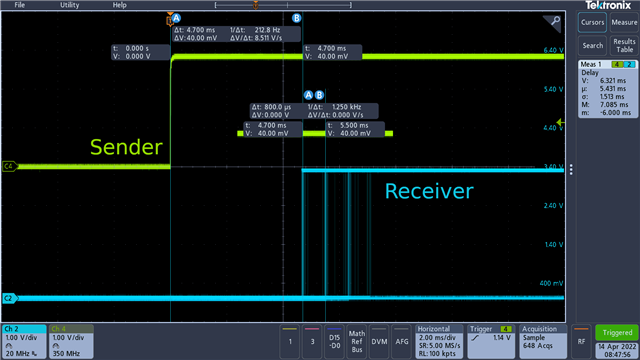.eventProps = GAP_ADV_PROP_LEGACY | GAP_ADV_PROP_SCANNABLE, .primIntMin = 32, //32 * 0.625ms = 20ms .primIntMax = 32, //32 * 0.625ms = 20ms GapAdv_enable(handle, GAP_ADV_ENABLE_OPTIONS_USE_MAX, 0)GAP_EVT_ADV_START I stop it again.GAP_EVT_ADV_START event I get 25-30ms. SCAN_TYPE_PASSIVE interval = 16, //16 * 0.625ms = 10ms window = interval maxNumReport = 0

